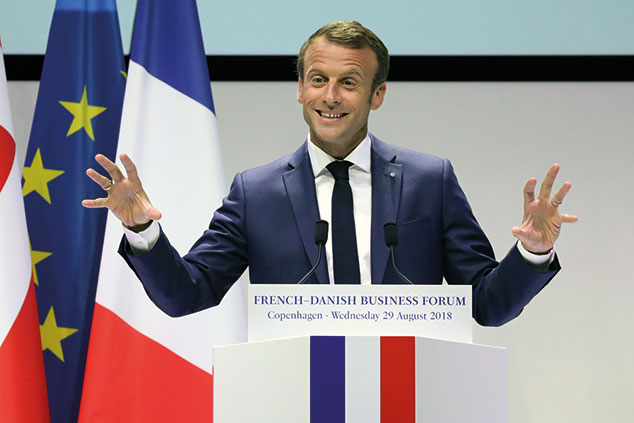
“Emmanuel Macron may be a big figure on the world stage, but at home in France he’s facing an uphill struggle to regain public confidence,” says Hugh Schofield on the BBC website. The latest opinion polls suggest that “only 28% of voters are satisfied with his performance – down from 35% in July”.
These figures mean that “he is actually more unpopular at this point in his mandate than were either of his predecessors – François Hollande and Nicolas Sarkozy”. What’s more, the far-right National Rally is now level-pegging with Macron’s party in the polls for the upcoming European elections, a potential “body blow” for his administration.
Scandals and resignations
Part of the reason for Macron’s rapid fall from grace is “a series of high-profile departures from his government”, says Adam Forrest in the Independent. These include the surprise resignation of his environment minister, Nicolas Hulot, a popular former activist and TV presenter, and the exit of the sports minister, Laura Flessel, after her tax affairs were queried.
There was also a “summer scandal over the firing of his bodyguard” who was captured on video “hitting a male protester and dragging away a woman while off duty”. The president himself was also “heavily criticised” for “telling an unemployed man he could easily get a job simply by “crossing the street”.
The series of “mini-scandals” has clearly had an effect, says Adam Nossiter in the New York Times. However, the more important factor for Macron’s unpopularity are more “substantive”. In particular the “overwhelming feeling” is that his “express train of pro-market reforms – lightening a protective labour code, largely doing away with a wealth tax, ending favoured status for the country’s railway workers – has so far not improved the lives of ordinary French people”. Voters have “grown impatient” with an unemployment rate that remains above 9%, while the economy grows sluggishly.
No choice but to double down
Still, Macron “has little choice but to press on and hope for results”, says Nicholas Vinocur on Politico. His 2019 budget “shows the president doubling down on supply-side economic policies and limiting handouts”. This week he unveiled tax cuts worth up to €26bn for workers and employers – “the most substantial one-time reduction France has seen in more than a decade”. These are part of a strategy “of making work pay more in a country where labour costs are high”. However, even Macron admits his reforms will “not pay off until two or three years into his term”.
This calculation is made more difficult by the fact that Macron “is threading a needle as he tries to stimulate the economy without undercutting his pledge to make France a model of fiscal discipline within the European Union”, says Stacy Meichtry in the Wall Street Journal. Under the current proposals, France’s budget deficit is expected to reach 2.8% of gross domestic product in 2019, which puts it perilously close to the EU’s deficit ceiling of 3% of GDP.